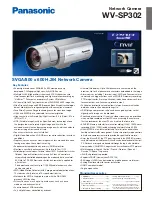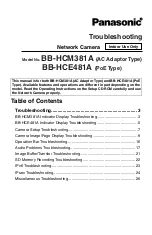
Glossary of Storage-related Terms and Acronyms
Cisco Small Business NSS3000 Series Network Storage System Administration Guide
82
9
Disk
Tax
/
Disk
Overhead
: The limitation of hard disk drive (HDD) capacity when
specific RAID configurations that use mirroring or redundancy are applied to an
array.
DNS
: Domain Name System (or Service or Server). An Internet service that
translates domain names into IP addresses. While domain names are alphabetic
and easier to remember, the Internet uses IP addresses. When you use a domain
name, a DNS service must translate the name into the corresponding IP address.
The DNS system is its own network. If one DNS server does not know how to
translate a particular domain name, it asks another one, and so on, until the correct
IP address is returned.
Domain
: The name that identifies a computer connected to the Internet. For
example, www.google.com. The "www." refers to the connection to the World
Wide Web; the middle portion of a domain name is usually the name of the
company that owns the computer (in this case, Google). The final portion of a
domain name tells you what kind of site is served by this machine. In this case,
.com means this is a commercial site. Other categories include: .net, .org, .edu, .fr,
.uk, etc. All devices sharing a common part of the IP address share that domain.
dotted
quad
: This refers to the IP address number.The dotted quad is a unique
number format made up of four parts separated by dots. For example,
116.112.96.2.
E
ext2
: Second extended filesystem. A native filesystem for the Linux kernel. It was
initially designed to replace the extended filesystem (ext). It is fast enough that it is
used as the benchmarking standard. Although ext2 is not a journaling filesystem,
its successor, ext3, provides journaling and is almost completely compatible with
ext2.
ext3
: Third Extended Filesystem. A journalled filesystem that is commonly used by
the Linux operating system. Unlike its predecessor, ext2, the journaling support
alleviates lengthy filesystem checks (fsck) at bootup after a sudden system crash,
reset, or power loss. It is the default filesystem for many popular Linux
distributions.
















































